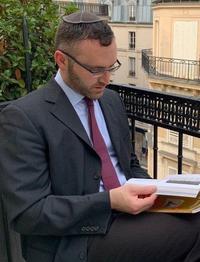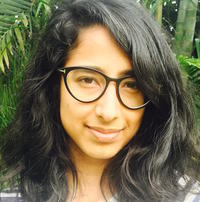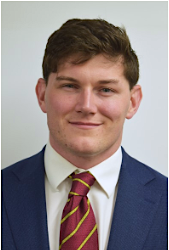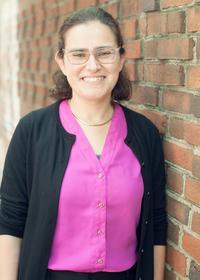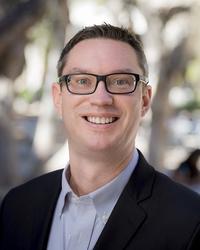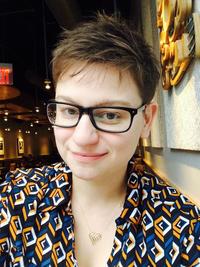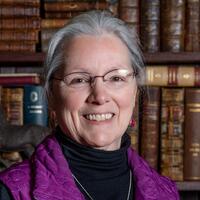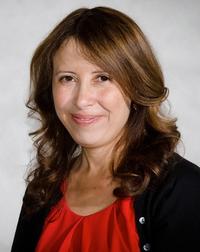Neri Y. Ariel
Hebrew University
Dr. Neri Y. Ariel obtained his Ph.D. in Talmud and Halacha at Hebrew University (July 2019). Ariel is a Post-Doctoral research fellow and lecturer in Israel and Germany. Ariel completed recently a joint research project as an interoffice collaboration (ZJS, FUB & Menczer, HUJI). Additionally, as cooperation partner at the Institute of Jewish History in Austria (INJOEST), at the University of Vienna and at the Austrian Academy of Sciences (ÖAW), he researches Hebrew fragments retrieved from Book-Binding deepening the understanding of medieval Jewish traditions in Europe. Ariel’s Ph.D. research has focused on his discovery of a hitherto unknown genre within Judaeo-Arabic literature named Adab al-Qādi (“etiquette of judgeship” earlier known in its Hebrew name חובות הדיינין).
Comparative Judaeo-Islamic Legal History: Adab al-Qāḍī
This research will supply extensive examples of content-related parallels and structural equivalents of Geniza remnants in this newly discovered Judaeo–Arabic subgenre and already-known works by their Muslim contemporaries in a well-based genre. Examining textual proximities and the possible ideological juxtaposition of the legal, philosophical, and literary contexts, I wish to ponder several issues characteristic of the distinguished Adab al-Qādi or the judges’ duties genre (Heb. hovot ha-dayyanim) relating to questions such as the judge’s ethical character, the perception of the adjudicative process, and the comprehension of civil procedure. The publication of this jurisprudentially contextualized monograph will be a breakthrough in interdisciplinary and interreligious Judaeo-Islamic research.
Report and Updates
I am honored to deliver the summary of my progress done with the generous support on behalf of the Humboldt-Yale History Network Travel Grants Program, jointly administered by the Anneliese Maier Research Award of the Alexander von Humboldt Foundation and the Whitney and Betty MacMillan Center for International and Area Studies at Yale University. Despite the uniquely challenging times of the Covid-19 pandemic, I did my best to promote this proposed research in the best way possible. The travel grant assisted me to a large extent presenting my research in several renown occasions. I had the honor to present my research in Exeter and Leeds, UK, and in Erfurt, Germany. These occasions made it possible to develop the openness of interdisciplinarity of my research.
In the time of the fellowship, I was able to make scientific contacts and earn the guidance of one of the greatest scholars of Islamic studies, Prof. David S. Powers from Cornell University. Moreover, I was able to make contacts with scholars of a variety of disciplines and to enrich my jurisprudential knowledge, working now on my second PhD& Habilitationsschrift/ le doctorat d’état. A research proposal is in advance levels of composing and I have received first comments from my current advisor, Prof. Yair Lorberbaum. The comments made me aware of a new field of law and to specialize more specifically in legal theory/ Jurisprudence. As my scholarly background is both from Yeshivot and historical-philological training, this time of funding helped me to develop my academic personality not only as a researcher of Jewish history or Jewish studies but also as a comparativist and as a legal historian of shared jurisprudence between Islam and Judaism. One of the important insights of this research is that the genre is not only Jewish or Muslim but also Christian (mainly by the Syriac church). In some correspondence with Prof. Mathieu Tillier from the Sorbonne University, I realized that I do not only have to strengthen my Syriac but also open myself to two important languages, Latin and French, that will open doors for further significant research into the field. In personal conversations, Prof. Powers and Prof. Stillman encouraged me to do so indeed, as researchers in the Sorbonne, CNRS and other French institutions dedicated vast literature to the Judgeship of this researched period. One step in this French arena was made in my latest talk at École pratique des hautes études (EPHE, December 2020) and I hope to deepen my French skills and my connections to French scholarship.
New publications were made in this time period (in selection):
a. My book manuscript The Etiquette of Judgeship in Geonic literature: Kitāb adab alqaḍā to Rav Hai Gaon and Kitāb lawāzim al-ḥukkām by Rav Samuel Ben Ḥofni Gaon Critical edition with annotated translation and commentary was submitted to the Yad Ben-Zvi Institution. It went through thorough peer-review process and was recently accepted for publication under revision requests (revise and resubmit).
b. Newly published is my article: “Fußspuren eines gaonäischen Midrasch zu Hiob (32:11) in Samuel b. Ḥofnis neu entdecktem Fragment (CUL T-S Ar. 46.156) – Kitāb lawāzim al-Ḥukkām”, JUDAICA: Neue Digitale Folge (JNDF) 1 (2020), 1–11 (Doi: 10.36950/jndf.1.3)
c. Two publications are already out and awaiting the publisher due to covid circumstances: “Ein Fragment aus der Einführung zum »Kittāb Lawāzim al-Ḥukkām« von Rav Shmu’el Ben Ḥofni Gaon”, Frankfurter Judaistische Beiträge (FJB), (in print) and also: “Eine kurze Darstellung der jüdischen Feiertage zur Erhellung für deren Relevanz aus der Sicht des staatlichen Feiertagsrechts”, Hrsg. Prof. Wolfgang Wieshaider u.a., Juristische Fakultät: Öterreichisches Archiv für recht & religion 66 (2019) 1–9
d. Submitted for publication is my newest paper “Rav Hai Gaon’s Jurisprudential Monograph Kitāb adab alqaḍā Reconstructed from the Cairo Genizah”, Jewish Quarterly Review (JQR, submitted 10.10.2020).
During the fellowship period I applied for two research grants under this matter, these were recently approved:
1. The Oriental dep. of Staatsbibliothek zu Berlin – Preußischer Kulturbesitz approved a 3-months residence scholarship in Berlin. This will contribute to this research and to the development of the SBB collections as well.
2. EU-Projekt: Research Infrastructure on Religious Studies (ReIReS) for short term research in Mainz (2-3 weeks).
Both these fellowships will take place hopefully in the summer, depending on health restrictions regarding Covid19. These developments will assist me with bringing this research several steps further, beyond technical identification of single fragments and will teach something about Ashkenazi erudition of the Middle Ages.
With the generous help of the Humboldt-Yale grant I could afford myself intense concentration on research, publishing and improve my chances to advance in my research career. In addition, I had the time to apply for post-doctoral positions. Two prestigious positions were approved recently: The Kreitman Postdoctoral Fellowship at the Goren-Goldstein Dep. of Jewish thought at the Ben-Gurion University for this academic year and the Prize named after Prof. Ephraim Elimelech Urbach on behalf of the Memorial foundation for Jewish culture & World Union of Jewish Studies R.A. These fellowships will assist me in the forthcoming years while working on this second PhD project (including legal degree and rabbinate ordination) as a research fellow at the Tager Program for Jewish Law at the Bar Ilan University law school.
Tiraana Bains
Yale University
Tiraana Bains is a Ph.D. Candidate in the History Department at Yale University. Her research is focused on questions of state formation, political culture, and political economy in the global British empire and South Asia in the seventeenth and eighteenth centuries. She is currently completing a dissertation titled, ‘Making, Debating and Practicing Empire in South Asia, circa 1756–1799.’
Making and Debating Imperial Transitions in South Asia, circa 1756-1799
This project examines multi-sided and often vicious contests over the configuration and conduct of a British imperial state in eighteenth century South Asia. It contends that the transformation of British imperial rule in South Asia in the second half of the eighteenth century did not proceed from an inevitable and consensual thrust towards consolidation and centralization. Debates over the British state and empire in South Asia did not simply feature voices in London or Calcutta; nor was there a single, monolithic and “official” understanding of empire. A range of actors, situated across the expanse of the global British empire from Boston to Bencoolen, and in territories outside formal British control, from Benares to Arcot, debated the everyday workings and reform of the British empire and in the process, pushed and redefined the boundaries of political participation. The remaking and partial centralization of imperial rule thus occurred amidst and in opposition to multiple alternative proposals. By providing a polyvalent history of both imperial thought and practices, this project recovers the role and agency of South Asian actors, from the Mughal Emperor himself to humble weaver communities, in debating and attempting to shape British imperium in South Asia.
Erik de Lange
Utrecht University
Erik de Lange is a postdoctoral researcher and lecturer at Utrecht University. He has recently completed his PhD thesis ‘Menacing Tides. Security, Piracy and Empire in the Nineteenth-Century Mediterranean’ at Utrecht University, where he worked within the ERC-funded research project ‘Securing Europe, Fighting its Enemies. The Making of a Security Culture in Europe and Beyond, 1815-1914’. He has published with Cambridge University Press, Böhlau and Routledge and is the chief editor of the Utrecht School for Historicizing Security Blog.
The Course of Empire: Knowledge and its Circulation in the U.S. Mediterranean Squadron, 1816-1860
Historians have started to incorporate knowledge into their conceptualizations of sea power, but they often focus solely on hydrography. Furthering on those new historiographical ventures, this research project poses the question: what knowledge of the Mediterranean did naval actors aboard the U.S. Mediterranean squadron produce and circulate between 1816 and 1860? By inquiring into knowledge ‘of’ the Mediterranean, this project will uncover how navies helped engender understandings of the Mediterranean as a regional whole. The project will thus shed new light on the nineteenth-century re-imaging of the Mediterranean Sea and point to the overlooked American involvement in this transformation.
Report and Updates
With generous support of the Humboldt-Yale History Network, I was able to carry out crucial archival research for my project ‘The Course of Empire: Knowledge and its Circulation in the U.S. Mediterranean Squadron, 1816-1860’. In February 2023, I visited the Library of Congress and National Archives and Records Administration in Washington, DC. The material I consulted consisted of the private papers of several American commodores who commanded the Mediterranean squadron, complemented by the extensive collections of official correspondence held in the archives of the Department of the Navy. These sources provided useful insight into the knowledge practices of the US Navy in the Mediterranean during the nineteenth century.
The Mediterranean squadron was one of the largest and most important stations in the nineteenth-century US navy, but not necessarily for military reasons. The squadron saw little combat experience after the end of the Barbary Wars (1801-1815). As a consequence, its commanders had ample time for scientific and diplomatic work. My research in Washington allowed me to better understand the connections between both. For instance, I found out how the Navy Department issued works of legal scholarship to the commodores, who complemented their contents with reports on local legal traditions (of the Ottoman empire, in European prize courts, or during the chaos of the Greek Revolution), and then implemented their understanding of international law in diplomatic dealings with various Mediterranean polities. The archives also revealed promising material on botany, geology and archeology, including a detailed study on hieroglyphs by one senior officer. The Department of the Navy issued quite specific instructions on the scientific work that it wanted the officers to do, so I will be able to track how the knowledge interests, practices and output of the Mediterranean squadron developed over time.
These new insights will lead to two publications. First, I am planning to write an article arguing for the importance of the US Mediterranean squadron as part of the new American republic’s international presence. The fleet served as a tool of knowledge-gathering, diplomatic contact and imperial posturing. Naval officers had to uphold an ideal of the US as not only a civilized but an exceptional power, rooted in a specific understanding of the Mediterranean as a place of contact and competition. Their dealings with local officials and societies, whether in Cadiz, Livorno, Istanbul or Algiers, often complicated this ambition, which gives unique insight into the limitations and inconsistencies of American diplomacy in the Antebellum era. Secondly, my findings on US naval involvement in various crucial historical events (the Greek War of Independence, Mehmed Ali’s campaigns in the Levant, the revolutions of 1848 in southern Europe) will feature in my new book project, which puts forth a seaborne, aquatic history of nineteenth-century international relations. The Humboldt-Yale History Network has helped me create a solid empirical foundation for both of these texts, and I remain immensely grateful for its support.
Jonathan Dixon
University of Cambridge
Jonathan Dixon is a PhD History student at the University of Cambridge. He is interested in how geographical and religious ignorance and mythology led early modern Europeans to explore and colonise Africa, the Americas and Asia. He completed his undergraduate studies at Queen’s University Belfast before pursuing postgraduate studies at the University of Cambridge on a Newton Scholarship. Jonathan is a member of the European Society for Renaissance Studies, The Centre for the Study of Global Human Movement, as well as, the Ecclesiastical History Society and the Hakluyt Society. Outside of academia, he enjoys Rugby Union.
Remnants of True Religion: The Jesuits Missionaries and Native People of New France 1612-176
Deborah Hamer
Omohundro Institute of Early American History and Culture
Deborah Hamer is a research associate at the Omohundro Institute of Early American History and Culture at the College of William and Mary in Williamsburg, Virginia. She received her Ph.D. from Columbia University and has taught at Boston College and the University of Miami. Using the Dutch West India Company as a case study, her work seeks to understand how the merchants governors of trading companies constructed and legitimated their authority in a period in which commerce remained morally suspect. Her current project focuses on the West India Company’s reliance on the Amsterdam notary Hendrik Schaef to produce credible information.
Notaries and Knowledge Production: Hendrik Schaef and the Dutch West India Company
Using the notary Hendrik Schaef (active 1638-1665) and his relationship with the Dutch West India Company as a case study, this project argues that historians should attend more to how notarial practice determined what information would enter companies’ records and thus become (re)useable knowledge. At a moment in which official documents were often lost or delayed – because of accident, negligence, or purposeful obstruction – notaries filled a significant void in the early modern information ecosystem, allowing both Company employees and Company authorities to recreate the information they needed to pursue their interests in the Dutch Republic or in the empire. Yet, such archives are often read without regard for the fact that the notarial profession itself still carried with it a taint of immorality. Notaries could just as easily, their critics said, make false information seem true as faithfully reproduce true information. Reading Schaef’s volumes of notarial acts, complete with cross-outs and marginal corrections and additions, in tandem with the genre of conduct guides for notaries and images of notaries at work suggests how the demands of Schaef’s profession shaped which people and what information could become useable for the Company and for the employees who sought to make claims against it.
Mark Hanna
University of California, San Diego
Mark G. Hanna is associate professor of history at the University of California in San Diego whose work focuses on piracy, smuggling, and other illicit activities in early America and the British Empire. Mark received his B.A. in history at Yale University (1996) and a doctorate in the History of American Civilization at Harvard University (2006). His first book, Pirates Nests and the Rise of the British Empire, 1570-1740 (2015) received numerous awards including the Frederick Jackson Turner Award, the John Ben Snow Prize, and a John Lyman Book Award honorary mention.
Moral Tempests: The Oceanic Origins of Four American Philanthropic Debates and their Modern Implications, 1600-1900
Moral Tempests: The Oceanic Origins of Four American Philanthropic Debates and their Modern Implications, 1600-1900, explores the way maritime conflicts inspired important and meaningful debates on land in colonial America through the late nineteenth century over what we may call today “humanitarian” principles, or what they referred to as “philanthropy.” For example, those who questioned the morality of privateering inspired heated arguments about the legal parameters of war including the rights of private individuals and neutral parties. During the “Age of Sail” jurists, politicians, and novelists argued whether revolutionary uprisings, imperial incursions, or the slave trade were legitimate and justifiable acts or blatant forms of piracy to be condemned. By the early republic many Americans believed they were uniquely poised to lead the world in what they perceived as a global moral transformation. However, this is not a simple narrative of American moral progress. By the 1850s, the United States was one of the only western powers that refused to ban privateering as a form of warfare, its citizens repeatedly invaded sovereign nations, and many Americans began to clamor for the reopening of the slave trade.
Caroline Marris
Columbia University
Caroline Marris is a doctoral candidate in History at Columbia University in the City of New York, where she is working on a dissertation on the English Channel region in the late sixteenth century. She has served as a teaching assistant for courses in early modern and modern European history and she is currently an Instructor in the University’s Core Curriculum. She has been a member of the Graduate and Early Career Committee of the American Historical Association, and has worked for several years on career diversity programming and development for PhD students in the humanities at Columbia and elsewhere.
The ‘Silver Sea’ and the Nation-State: The Multifaceted Geopolitics of the Early Modern English Channel
The English Channel has received very little critical or academic study in its own right, or even within a historiography of world oceans. My work argues that it was a crucial geographic arena in the political landscape of sixteenth-century Europe, and was a distinct theater of political change in the time of the Spanish Armadas, the Dutch Revolt, and the wide-ranging French Wars of Religion. It further argues for a historiographical pivot in the ways we think about, and write about, water. With some notable exceptions, much of the historiography on world oceans traces human activity on or around shorelines, but rarely further out at sea. Far from being an ‘empty’ or ‘null’ space, activities upon which are unknowable or untraceable, the environment of the early modern Channel demonstrates that water teems with human life (embodied in trade, migration, travel, and naval or scientific activity) and political ambitions. The dissertation as a whole makes a forceful case not just for the importance of understanding contemporary states of geographic knowledge when it comes to our understanding of early modern European politics, but also for putting detail and data behind the old truism that ‘knowledge is power.’
Carla Mulford
Pennsylvania State University, University Park
Carla J. Mulford, Founding President of the Society of Early Americanists, is Professor of English at Penn State, University Park. She has published nine books and over sixty articles and book chapters. She has studied and written about Benjamin Franklin for the past 25 years, placing him in a transatlantic context, as evidenced by her many publications, including The Cambridge Companion to Benjamin Franklin (2009), Benjamin Franklin and the Ends of Empire (2015; paperback, 2019) and over twenty articles and book chapters in Franklin studies. She is currently completing a book called Benjamin Franklin’s Electrical Diplomacy.
Benjamin Franklin and the Mediterranean
Benjamin Franklin, typically examined through the lens of American studies and “Founders” history, was deeply interested in the trade and culture of the Mediterranean arena. Yet Franklin’s writings on society, empires, and economy have received less attention than his work in the Pennsylvania Assembly and his efforts in the 1760s and early 1770s in behalf of the allied American colonies. Franklin’s writings are replete with his knowledge of peoples and trade networks in the Mediterranean. Even Franklin’s earliest writings reveal his curiosity about Mediterranean goods and people. During his years as an American commissioner and then as Minister Plenipotentiary (1776-1785) in France, Franklin learned first-hand about trade opportunities with different regencies in the Mediterranean and about problems in Mediterranean sea traffic, including piracy and captivity.
Report and Updates
Archival research for my project on Benjamin Franklin proved illuminating, and it confirmed that (with much additional archival sleuthing) I will be able to craft a book that opens up a new area of inquiry into Benjamin Franklin’s knowledge of and attitudes about peoples, cultures, and trade in the Mediterranean arena and Middle East. Very early in his life, Franklin developed a deep interest in understanding trade routes, particularly of the Silk Road, and their relation to commercial European societies. Like many early modern readers, Franklin read widely in books about eastern peoples, their manners, religious practices, and civic culture. As a cultural relativist – that is, as someone who understood that ideas about “civility” are socially constructed by the group where one is located – Franklin often sought to understand better people from cultures that differed from his own. He did this with peoples indigenous to the Americas, and he did this when thinking about peoples in the Mediterranean arena and the East and Middle East. He also sought an understanding of Islam. I learned during my research in November, for instance, that Franklin favored the views of Muhammad offered by Boulainvilliers, views favoring the prophet as a person of peace. Granted, Franklin was interested in eastern peoples and cultures because he was deeply committed to global trade, which would require peace on lands and seas, yet Franklin evidenced significant curiosity about how other people lived and what they believed. His understanding of the Mediterranean arena and the Middle East resulted from wide reading in the literature available at the time. Searching for exactly what Franklin read was the purpose of my archival research.
The $1,500 funds granted me from the Humboldt Yale History Network Travel Grants Program supported my travel to two archives, the American Philosophical Society (in Philadelphia) and the Library Company of Philadelphia. My original plan involved travel to the Library Company and then to New Haven, where I would be working with the editor of Franklin’s papers whose project involves middle eastern affairs. Restrictions caused by the pandemic prevented my going to New Haven to work with the Franklin papers editors, so I opted to work in archives at the Library Company and the American Philosophical Society.
At the American Philosophical Society, in August, I examined and read manuscript books Franklin gave to the Society upon his return from France. Some of these offered texts and maps of regions and battlements of British and Habsburgs against the Ottomans. I am beginning to understand better the range of Franklin’s knowledge about the Ottomans and about the Mediterranean arena and Middle East. Specifically, two manuscript books (including maps) covered military expeditions made by British and Germans against Ottomans in what Colin Heywood once called “King William’s Other War.” I also consulted several maps and manuscripts (in French) relating to Russian history and to the 1716-18 Austro-Turkish war. How Franklin acquired these books is a puzzle, but I’ve been able to find some hints in correspondence. This research offered me a significantly richer picture of Franklin’s deep interest in military matters, an interest he used his position in France to pursue, probably in somewhat clandestine fashion.
In November, I travelled again to Philadelphia to study two large areas of Franklin’s interests – Russian history and the study of the Middle East and Islam. Franklin’s personal library (some titles of which are at the Library Company) and the titles acquired by the Library Company in Franklin’s day reveal Franklin’s deep interest in peoples, trade, and geography of the Mediterranean and Middle East. By reading several volumes at the Library Company during my three-day research trip, I gained perspective on how much Franklin sought to understand Britain’s diplomatic relationships in the Middle East and North Africa and the peoples who lived there. He was evidently sufficiently intrigued by Boulainvilliers’ portrayal of Muhammad that he found ways to borrow from Islamic belief when he devised his personal “Articles of Belief and Acts of Religion.” And he sought to understand the best methods of communicating intercultural understanding with peoples in the Middle East. He wrote about these regions and their peoples from the 1760s onward. By reading with care, I was able to find the sources of two stories Franklin wrote about – sources that have remained unidentified by the editors of Franklin’s papers.
This research, performed as a result of the fellowship, has confirmed my original assessment that sufficient material is available for a monograph. While I have yet a good deal of research to perform, I have begun to develop the framework for the chapters of my book. With the support provided by the fellowship, I can proceed with confidence about the importance of this work.
Dana Velasco Murillo
UC San Diego
Dana Velasco Murillo (PHD UCLA 2009) is Associate Professor of History at UC San Diego. Velasco Murillo’s research interests center on recovering the histories of the non-elite groups of colonial Mexico’s northern silver mining district, particularly women and native peoples. She is the author of Urban Indians in a Silver City: Zacatecas, Mexico, 1546-1810 (Stanford University Press, 2016). She co-edited City Indians in Spain’s American Empire (Sussex Academic Press, 2012). Her current book project, Chichimeca Arc: War, Peace, and Resettlement in America’s First Borderlands, 1546-1616, centers nomadic indigenous peoples in the development and consolidation of New Spain’s sixteenth-century borderlands.
Chichimeca Arc: War, Peace, and Resettlement in America’s First Borderlands, 1546-1616
The mid-to late sixteenth century war against stateless peoples (1550-1590) in America’s first borderlands—New Spain’s emerging near northern silver mining district—devastated nomadic indigenous populations (generically called Chichimecas). Traditional native hunting and foraging lands experienced intense ecological change and native men and women were killed or sold into long-term or permanent enslavement. Worn down by years of violence and deprivation, native peoples gradually submitted to Spanish rule in the late 1580s, agreeing to resettlement in newly formedreducciones (reservations) near Spanish towns. The focus on state peoples and events casts Iberians and resettled indigenous peoples from central Mexico as the protagonists of this foundational borderland’s history. This book recovers and repositions Chichimecas as central protagonists. It considers how they experienced the war, took an active role in peacemaking, responded to social reorganization in reducciones, and navigated the state’s attempts to transform their lifeways. This study is particularly interested in repositioning women as important protagonists in the course of the conflict, arguing that they took on important roles in the peace process and in reconstituting family life under refugee conditions when they eventually submitted to colonial rule.
Report and Updates
I utilized my Humboldt Yale History Network Travel Grant to support one month of archival research at the Newberry Library on my second book project, The Chichimeca Arc: War, Peace, and Resettlement in America’s First Borderlands, 1546- 1616. The Newberry Library is the only one of the four archives I identified in my grant proposal that has opened since the onset of the Covid 19 Pandemic. I worked there the entire month of June 2021. Despite the Covid 19 restrictions in place at the Newberry Library I examined materials at the Special Collection Archive, the General Reading Room, and at a reserved carrel. I drew heavily from the Edward E. Ayer Manuscript Collection. These materials included manuscripts, transcripts, rare books, and secondary sources on Spanish America, particularly those spanning the period 1540 to 1640. I spent considerable time consulting transcripts of primary sources from archives in Spain and Mexico on the Mexican North and the current United States Southwest. I also found significant information on my project in the library’s collection of colonial-era chronicles and histories as well as books and secondary source Spanish-language materials that are rare or were out of print. Interactions with other researchers were limited, but I was able to consult with other archivists and curators via zoom and on-site meetings. Ultimately, the research trip was very productive despite the lingering impacts of the Covid Pandemic.
The materials I examined at the library were so rich that I project that they will constitute at least 50 percent of the source material of the third chapter of my monograph: “War of Fire and Blood.” This chapter focuses on the fate of native peoples taken as prizes during the Chichimeca War, their subsequent forced conversion and enslavement, and their relocation throughout New Spain, the Caribbean, and even the Iberian Peninsula. I sought sources that offered some insight into this “Chichimeca Diaspora,” particularly how it facilitated the spread of Christianity among non-sedentary native populations in the sixteenth century. The sources from the Newberry Library suggest that this diaspora was far greater and more complex than suggested by previous scholarship. Notarial records and viceregal correspondences indicate that the involuntary movement of Chichimeca peoples involved multiple steps as individuals were moved from one location to the other and resold to new owners. Understanding the nature and consequences of this process, described as “traspaso” will constitute a central thread of chapter three.
I project that I will draft this chapter during the 2021/2022 academic year. I also plan on using Newberry Library material to complete and submit an article for publication by fall 2021 entitled: “The War Against Indian Women and Children in New Spain’s Sixteenth Century Frontier.” Finally, findings from this research trip will form the basis of a conference paper, “Slavery, Service, and Transfer: The Chichimeca Diaspora in Spanish America, 1580-1620.” I will be sure to acknowledge the support of the Network in the conference paper, the article, and the book project.
Brian Sandberg
Department of History, Northern Illinois University
Brian Sandberg is a Professor of History at Northern Illinois University who works on religion, violence, and political culture during the European Wars of Religion. He has published Warrior Pursuits: Noble Culture and Civil Conflict in Early Modern France (Baltimore: Johns Hopkins University Press, 2010), War and Conflict in the Early Modern World, 1500-1700 (Cambridge: Polity Press, 2016), and numerous articles and essays. Sandberg has held fellowships from the Institut d’Études Avancées de Paris, the Fulbright Scholar Program (France), the Institute for Research in the Humanities (Madison), the National Endowment for the Humanities (Medici Archive Project), and the European University Institut
Crusading, Religious Violence, and Imperialism in the Early Modern French Mediterranean
My book project, Crusading, Religious Violence, and Imperialism in the Early Modern French Mediterranean, delves into the crusading ideologies that motivated early modern French imperialism. Religious and political treatises, pamphlets, and correspondence of the late sixteenth and early seventeenth centuries evoked Louis IX and French crusades in the Holy Land. This book examines French involvement in early modern Mediterranean conflicts and in domestic religious violence during the French Wars of Religion (1562-1629). Fluid concepts of crusading could be deployed by French Protestants and Catholics against blasphemers, unclean, heretics, and infidels inside the kingdom and worldwide. Crusading impulses contributed to the formation of French imperialism and early notions of globalization, which arguably redefined the French relationship with the Mediterranean in lasting ways. The call to wage holy war suggests that complex, but powerful, forms of racial and religious identification were operative in the early modern Mediterranean. The crusading ideologies that coalesced during this period of extensive religious warfare blurred the lines between infidels and heretics in fascinating ways that had global implications. Understandings of religious violence that were forged in the Mediterranean thus contributed to broader French ideologies of empire at the moment when France launched its global imperial project.



